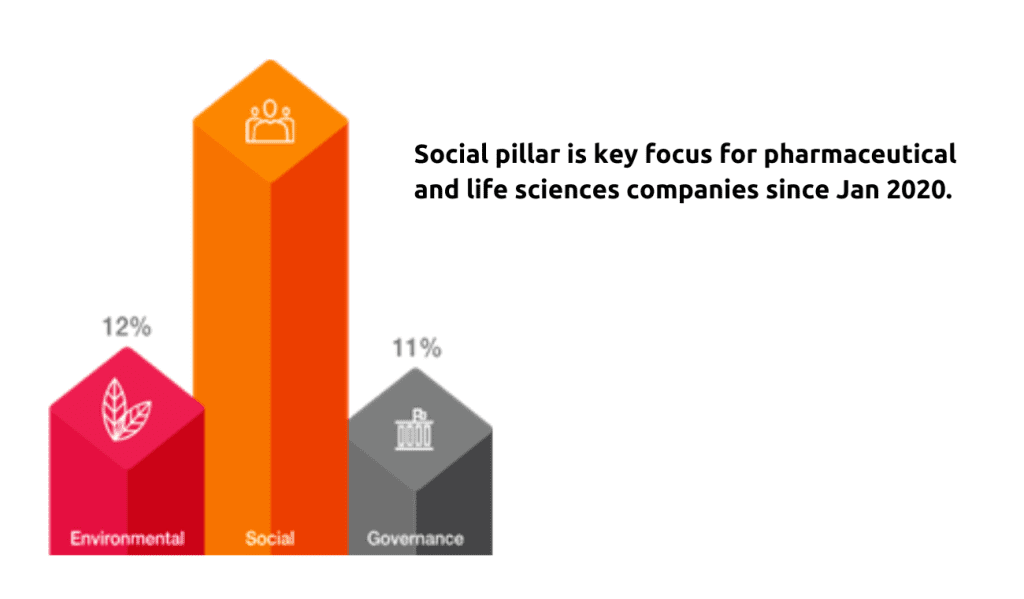Embracing ESG: A Roadmap for Health Organizations to Prioritize Sustainability and Social Responsibility
Read the Magazine in PDF
Environmental, Social, and Governance (ESG) considerations have gained significant traction in the corporate world in recent years. While the “E” and “G” factors are well-known and widely discussed, the “S” (Social) aspect is often overlooked. In the healthcare industry, the “S” in ESG is crucial in ensuring equitable access to healthcare, promoting patient safety, employee well-being, and fostering trust among stakeholders. This article examines the importance of the “S” in ESG and its impact on the healthcare industry, focusing on India and global examples.
Access to Healthcare
One of the core social aspects of the healthcare industry is ensuring access to quality healthcare for all segments of society. Equitable access remains a pressing challenge in India, the country with the second-largest population globally. However, some initiatives demonstrate the commitment of the healthcare sector to address this issue. For instance, the “Ayushman Bharat” scheme launched by the Indian government aims to provide health coverage to over 500 million vulnerable citizens, offering them financial protection and access to essential medical services.
Globally, organizations like Médecins Sans Frontières (Doctors Without Borders) work tirelessly to bring medical aid to underserved and conflict-affected regions. These efforts underline how healthcare organizations can align their social responsibility with ESG principles to make healthcare accessible to those in need.
Patient Safety and Quality of Care
The “S” in ESG also highlights the importance of patient safety and quality of care. Healthcare providers must prioritize patient welfare, ensuring treatment in a safe and respectful environment. In India, patient safety has gained attention, and organizations like the National Accreditation Board for Hospitals & Healthcare Providers (NABH) work towards certifying healthcare institutions that adhere to stringent patient safety protocols.
Internationally, the Joint Commission International (JCI) sets global standards for patient safety and quality care, accrediting healthcare facilities that meet their rigorous criteria. By embracing these social considerations, healthcare organizations build trust among patients and stakeholders while also improving their overall performance.
Employee Well-being and Diversity
A socially responsible healthcare industry should prioritize employee well-being and diversity. A valued and supported workforce will likely be more engaged and motivated to deliver better care. Initiatives that promote employee health and well-being, such as mental health support programs and work-life balance policies, foster a positive work environment.
Organizations like Apollo Hospitals have implemented comprehensive employee wellness programs in India to support their staff.
Ethical Marketing and Transparency
Transparency and ethical marketing are vital social aspects that contribute to the overall trust and reputation of the healthcare industry. Companies must be accountable for their actions, providing accurate information about their products and services. Misleading marketing practices can harm both patients and the industry’s credibility.
J&J witnessed several controversies about misleading drug marketing, prompting the government to introduce stringent regulations to ensure transparency and protect patients’ interests. Globally, pharmaceutical companies like GlaxoSmithKline (GSK) have adopted transparency initiatives, making their clinical trial data accessible to the public.
Philanthropy and Community Engagement
ESG’s “S” aspect extends to philanthropy and community engagement. Healthcare organizations that actively invest in community initiatives and social causes contribute positively to the communities they serve. Many global healthcare corporations, like Novartis and GSK, have established corporate social responsibility programs focused on community development, health education, and disease prevention.
In India, the Tata Group, known for its diverse business interests, has significantly contributed to the healthcare sector through philanthropic initiatives such as Tata Cancer Research Institute, including funding healthcare infrastructure and research.
Conclusion
The “S” in ESG holds immense significance in the healthcare industry, shaping the sector’s approach to equitable access, patient safety, employee well-being, and responsible practices. With its unique challenges and opportunities, India has witnessed numerous examples of organizations embracing the social aspect of ESG. The global healthcare community has also exemplified the positive impact of aligning social responsibilities with ESG principles.
As we move towards a future where sustainable and responsible practices are paramount, the healthcare industry’s commitment to its “S” responsibilities will be pivotal in building a healthier and more equitable world. Through collective efforts and proactive initiatives, the healthcare sector can drive positive change and inspire other industries to embrace ESG’s broader vision for a sustainable and socially conscious future.

Author
-

Independent ESG and CSR Advisor, Former ESG & CSR Lead Samsung South West Asia



